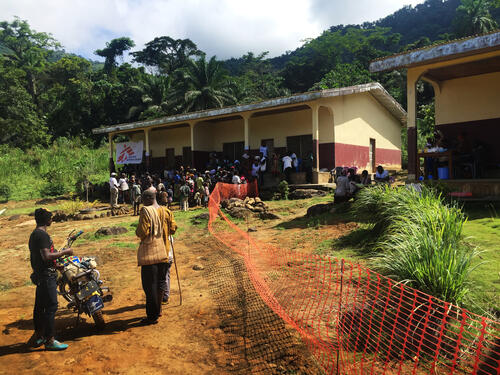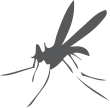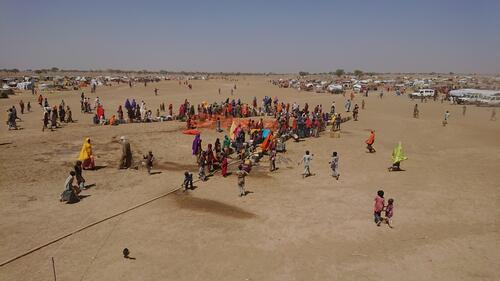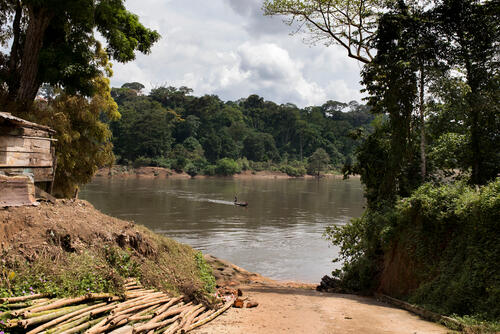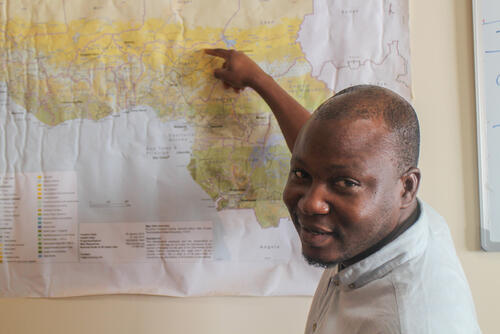Since 2014, the Far North region of Cameroon has been affected by the Lake Chad crisis, which has displaced hundreds of thousands of people within the country and across the border into Nigeria. But as Cameroon has been grappling with this challenge, a second, little-known humanitarian situation has also been evolving in the country's North-West and South-West Regions. Violence between government forces and separatist non-state armed groups from the English-speaking community has escalated sharply, forcing hundreds of thousands of people from their homes and leaving them in dire need of humanitarian assistance.
Here are five things to know about how violence is affecting people in North-West and South-West Cameroon:
1. Large numbers of people have been displaced
According to UN OCHA<a href="https://www.humanitarianresponse.info/en/operations/cameroon/document/cameroon-north-west-and-south-west-crisis-situation-report-n%C2%B05-31-march%3EUN">OCHA North-West and South-West Cameroon Situation Report No.5, 31 March 2019</a>, since 2016, growing violence between English-speaking separatists and central government forces in North-West and South-West Cameroon has uprooted 530,000 people from their homes. Facing attacks, physical and sexual violence, threats, kidnappings, killings, and the burning of villages, many people have fled to rural areas, where they live in extremely poor conditions in makeshift shelters in the forest or bush. Others have been forced to relocate to other cities, where they live on the street, or with host families in overcrowded and unsanitary settings.
530,000
530,
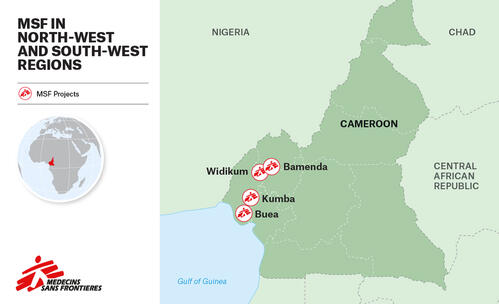
2. People are extremely vulnerable
The displacement caused by the violence has triggered significant humanitarian needs across both regions, leaving people in dire need of assistance. Severe insecurity and restrictions on movement prevent many people from accessing farms and markets, and many also struggle to access clean water for drinking, sanitation, and hygiene. Poor living conditions, the loss of livelihoods, and the lack of adequate food and water, combine to render people more vulnerable and place them at increased risk of disease. On top of this, many people have also experienced traumatic events. MSF teams have treated 280 people affected by violence.
The violence is also restricting people’s access to healthcare, hindering them from reaching medical centres; interrupting supplies of drugs and equipment; causing medical staff to flee; and forcing health facilities to close.
3. MSF is responding to the crisis – but humanitarian needs are huge
MSF is supporting 19 health structures across the North-West and South-West Regions to help them refer and provide emergency care to people who have difficult access to health services due to violence and displacement. In Bamenda and Widikum, in the North-West Region, and in Buea and Kumba in the South-West Region, our teams are operating a free ambulance service.
This allows vulnerable patients to be transported from the community to health centres or hospital so that they can receive specialised care, even during lockdowns and ‘ghost town’ curfews, when normal civilian movements and activity are restricted. Between June 2018 and March 2019, MSF referred over 2,500 patients by ambulance. The majority of referrals are women suffering from obstetric complications, but also include children under 15 and people suffering injuries and wounds inflicted by violence. We have referred 338 people with gunshot wounds via our ambulances.
Our teams also:
- manage the care of emergency patients, particularly pregnant women and children under the age of five;
- donate medicines and supplies;
- train community health workers to diagnose and treat the most-commonly seen diseases, such as malaria;
- provide psychosocial support to people.
As one of very few organisations operating in the rural areas of North-West and South-West Regions, we focus on providing medical care to displaced people who are most in need of our support, in the areas which we are able to access. While we are working to assist as many people as possible, as violence continues and the humanitarian situation worsens, needs are far larger than the response currently being provided.
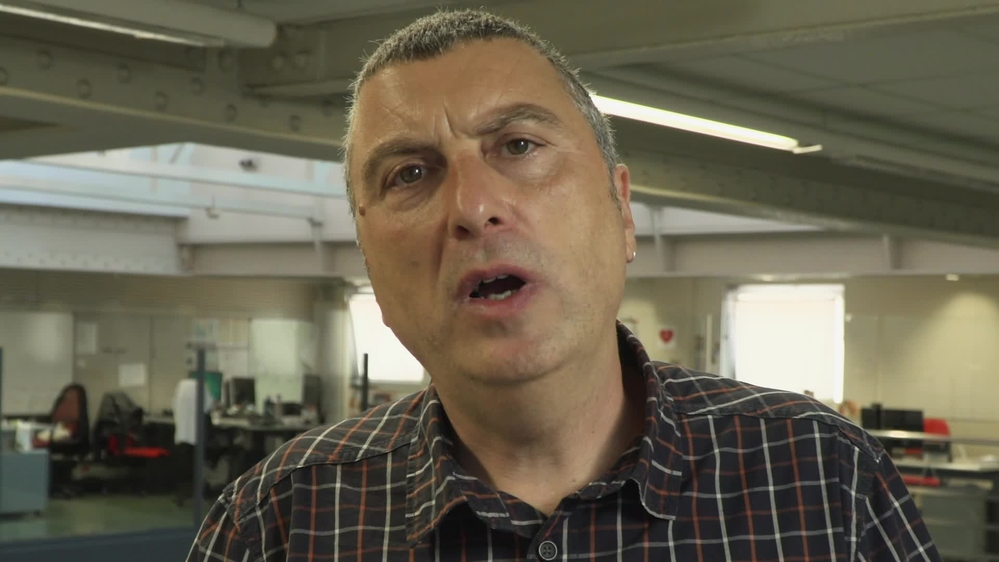
What are the challenges MSF is facing in Cameroon?
4. In some areas, people have not received any humanitarian aid
Due to severe insecurity and restrictions on movement, parts of the North-West and South-West Regions of Cameroon are totally inaccessible for international aid organisations. Only a few national aid organisations have occasional access. This means that large numbers of people who have been displaced into rural areas have not received any assistance at all.
While our teams have not been able to reach some areas and therefore cannot quantify the precise extent of the situation, we expect that large numbers of people have significant humanitarian and medical needs that are not currently being met. As the violence continues and international humanitarian access remains challenging, the vulnerability of these people is likely to increase.
5. Medical care is under attack
Attacks against medical facilities and health workers are part of the violence in North-West and South-West Cameroon. At first, these attacks were indiscriminate, but as the violence has continued, they have become intentional. Hospitals are deliberately being attacked or occupied, ambulances are being blocked, and medical personnel are being threatened, abducted, subjected to violence, or killed.
All parties involved in the conflict have been responsible for disrupting healthcare services and access, thereby depriving people of medical attention, often when they need it the most. Over the past year, our teams have documented 61 attacks on healthcare facilities and 39 attacks against medical professionals. Medical facilities and personnel need to be respected by government forces and non-state armed groups, so that vulnerable people can continue to receive the medical care they require.
Médecins Sans Frontières has been working in Cameroon since 1984 to provide medical assistance to vulnerable populations in a context of epidemics, natural catastrophes and situations of armed violence.
In 2015, MSF began providing emergency medical, nutritional and paediatric care for victims of violence and to displaced and vulnerable people in the Extreme North Region.
MSF began working in the North-West and South-West Regions of Cameroon in 2018 to strengthen the referral and emergency systems of district health systems, develop the capacity of their medical staff, and reach populations who have difficult access to health care due to violence.
In 2018, our teams also started activities in Cross River State, Nigeria, where 32,600 Cameroonian refugees were registered as of February 2019. MSF teams and the Cross River State Ministry of Health currently run mobile clinics in nine locations in Cross River State with about 200 patients a day. As of early May, MSF teams had carried out 20,565 primary healthcare consultations. MSF also provides psychosocial support to both the host and refugee population.



